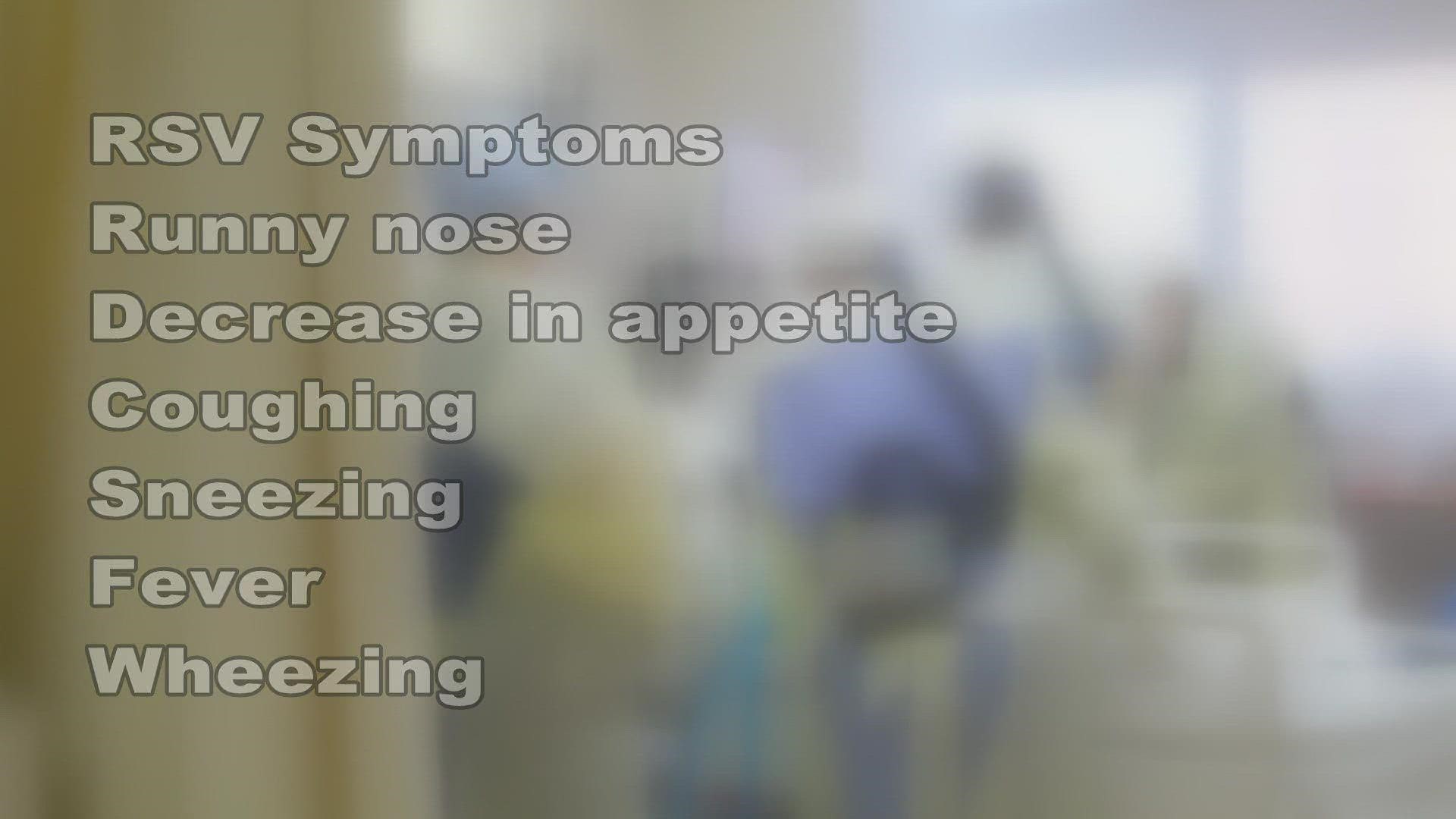TEMPLE, Texas — Cases of respiratory syncytial virus (RSV) have heightened in Central Texas and experts want people to know it doesn't only affect infant babies, but also older adults.
RSV is a respiratory virus that infects the lungs and breathing passages.
According to the Centers for Disease Control and Prevention, RSV infections can be dangerous for certain adults. Each year, it is estimated that more than 177,000 older adults are hospitalized and 14,000 of them die in the United States due to RSV infection. Adults at highest risk for severe RSV infection include:
- Older adults, especially those 65 years and older
- Adults with chronic heart or lung disease
- Adults with weakened immune systems
One Temple parent says one of her worries is that her five and nine year old children could potentially catch the virus at school then spread it to family at home.
"At least during COVID, we wore masks and it seemed like the masks were helping to keep some of those viruses from being spread. Whereas now, people are not wearing masks and I'm not even sure people are really washing their hands," Sheryl Austin explained.
Advent Health infectious disease expert Lacey Sanders says this virus isn't new and is around all year, but cases were likely heightened because COVID-19 cases have decreased.
"We haven't seen this sort of spike in RSV cases because of the hit of COVID over the last few years. But this is typically what happens with respiratory viruses when there's a dominant strain. As one settles down, another one surges and we see more cases rise in the community. That's the one thing about diseases, there's always a new one to come into play," Sanders shared.
Some symptoms of RSV that can been seen in people of all ages but especially infants and older adults include:
- Runny nose
- Decrease in appetite
- Coughing
- Sneezing
- Fever
- Wheezing
These symptoms usually appear in stages and not all at once. In very young infants with RSV, the only symptoms may be irritability, decreased activity, and breathing difficulties.
To help avoid contracting or spreading this virus, some tips from Baylor Scott and White Children's Hospital Dr. Dominic Lucia include washing your hands, avoid touching your face, and getting your flu shots for this flu season.
"There's basically been consistently a baseline level of RSV in a community since summer of 2021. We've had peaks and surges within that. Our last really significant one being earlier in the summer but because that baseline is there, we're always vulnerable to a surge because it doesn't seem to be going away seasonally like it was once did," Lucia said
Lastly, simply staying home if you feel sick is another suggestion.

